Why Love Island stars are giving evidence to MPs
Former islanders will discuss race, gender and body image
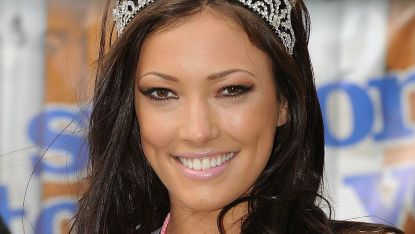
A formal parliamentary inquiry into British reality TV has been announced following the deaths of former participants on The Jeremy Kyle Show and Love Island.
Three former Love Island contestants will give evidence to a formal parliamentary inquiry into British reality TV today.
The inquiry was announced following the deaths of former participants from the programme, as well as from The Jeremy Kyle Show.
Subscribe to The Week
Escape your echo chamber. Get the facts behind the news, plus analysis from multiple perspectives.

Sign up for The Week's Free Newsletters
From our morning news briefing to a weekly Good News Newsletter, get the best of The Week delivered directly to your inbox.
From our morning news briefing to a weekly Good News Newsletter, get the best of The Week delivered directly to your inbox.
Ex-islanders Chris Williamson, Marcel Somerville and Yewande Biala will appear before the Digital, Culture, Media and Sport Select Committee as it discusses “how race, gender and body image are represented”, says Metro.
Former Jeremy Kyle Show participants Dwayne Davison and Robert Gregory will also give evidence to the committee, which is investigating the use of DNA and lie detector tests in reality TV.
MPs will consider whether enough support is offered during and after filming to people who appear on such programmes, and whether further regulatory oversight in this area is needed, says the Parliament.uk website.
Which guests have died?
Steve Dymond, 63, was found dead in a suspected suicide in May, ten days after he was filmed failing a lie-detector test on ITV2’s The Jeremy Kyle Show. He subsequently split from his fiancee, who had accused him of being unfaithful. Following pressure from Downing Street, MPs and psychologists, ITV decided to axe the programme.
Dymond’s death came after two contestants from the channel’s most-watched show, Love Island, were found hanged in separate suspected suicides. Sophie Gradon, 32, died in June last year, while Mike Thalassitis, 26, was found dead in March.
What will the inquiry be investigating?
MPs will look at the levels of psychological support provided by production companies and broadcasters; whether the design formats of shows “put unfair psychological pressure on participants and encourage more extreme behaviour”; and whether reality TV matches evolving attitudes to mental health.
Damian Collins MP, chairman of the committee, said: “This kind of TV featuring members of the public attracts viewing figures in the millions but in return for ratings, the broadcasters must demonstrate their duty of care to the people whose personal lives are being exposed.
“With an increasing demand for this type of programming, we’ll be examining broadcasting regulation in this area – is it fit for purpose?”
What has the committee looked at so far?
The committee has already received written and oral evidence from anti-bullying charities, the British Psychological Society and numerous TV channels.
And the inquiry grilled ITV bosses in a 25 June public hearing.
Those called to give evidence included Julian Bellamy, managing director of ITV Studios, Tom McLennan, executive producer on The Jeremy Kyle Show, and Graham Stanier, director of aftercare for Jeremy Kyle.The Committee chairman, Collins, told McLennan he found it “astonishing” and “irresponsible” that he did not have a rough estimate for the accuracy of the show’s lie detector tests.
Questioned over the professionalism of the people conducting the lie detector tests, McLennan said: “I don’t think they have medical qualifications, but they have qualifications in lie detectors.”
Will Love Island follow Jeremy Kyle’s fate?
The inquiry could have “major implications” for ITV, says The Guardian. “Tighter regulation that could increase costs could hit the bottom line at the broadcaster, whose share price has fallen in recent months,” the newspaper continues.
However, Love Island returned over the summer and is due to be screened twice a year from 2020, despite ITV being accused of “hypocrisy” by social media users, for cancelling one show and not the other, reports the Daily Mail.
The broadcaster has insisted that its duty of care is a “continuous and ongoing process” for Love Island contestants and that all participants are now offered therapy and bespoke training on social media and financial management.
Create an account with the same email registered to your subscription to unlock access.
Sign up for Today's Best Articles in your inbox
A free daily email with the biggest news stories of the day – and the best features from TheWeek.com
-
 'Make legal immigration a more plausible option'
'Make legal immigration a more plausible option'Instant Opinion Opinion, comment and editorials of the day
By Harold Maass, The Week US Published
-
 LA-to-Las Vegas high-speed rail line breaks ground
LA-to-Las Vegas high-speed rail line breaks groundSpeed Read The railway will be ready as soon as 2028
By Peter Weber, The Week US Published
-
 Israel's military intelligence chief resigns
Israel's military intelligence chief resignsSpeed Read Maj. Gen. Aharon Haliva is the first leader to quit for failing to prevent the Hamas attack in October
By Justin Klawans, The Week US Published
-
 Breathtaking: the Covid drama that may make you scream
Breathtaking: the Covid drama that may make you screamThe Week Recommends ITV three-parter is a 'tour de force' that exposes 'political complacency'
By Chas Newkey-Burden, The Week UK Published
-
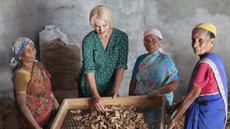 Joanna Lumley’s Spice Trail Adventure: an ‘uncynical’ celebrity travelogue
Joanna Lumley’s Spice Trail Adventure: an ‘uncynical’ celebrity travelogueThe Week Recommends This four-episode series follows Lumley to Indonesia, Madagascar, India, Jordan and Zanzibar
By The Week Staff Published
-
 ‘Theatre of cruelty’: has the reality TV bubble burst?
‘Theatre of cruelty’: has the reality TV bubble burst?Under the Radar A million fewer viewers watched the latest Love Island launch compared to last year
By Rebekah Evans Published
-
 Phillip Schofield: TV royalty’s fall from grace
Phillip Schofield: TV royalty’s fall from graceWhy Everyone’s Talking About The presenter announced his departure from This Morning after an award-winning 20-year stint
By Rebekah Evans Published
-
 Phil and Holly: is this the end for the nation’s favourite duo?
Phil and Holly: is this the end for the nation’s favourite duo?Talking Point This Morning hosts facing ‘tabloid feeding frenzy’ amid rumours of a falling out
By Chas Newkey-Burden Published
-
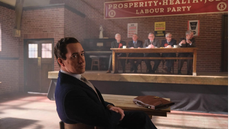 Stonehouse review: a fun drama about the MP who faked his own death
Stonehouse review: a fun drama about the MP who faked his own deathThe Week Recommends Three-part ITV drama recounts the rise and fall of John Stonehouse, played by Matthew Macfadyen
By The Week Staff Published
-
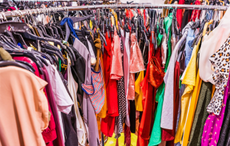 Will fast fashion ever slow down?
Will fast fashion ever slow down?podcast Love Island swaps fast-fashion sponsors for eBay amid concerns about environmental impact of clothes waste
By Julia O'Driscoll Published
-
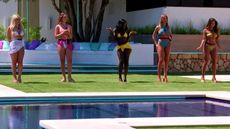 Love Island reviews: ‘stomach-churningly fascinating’ or just all at sea?
Love Island reviews: ‘stomach-churningly fascinating’ or just all at sea?The Week Recommends Reality show lands zero star rating - but others argue it’s just what the doctor ordered for Covid-wearing nation
By The Week Staff Published